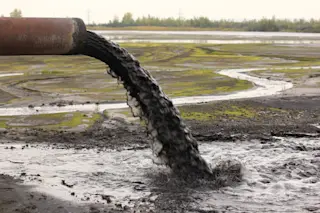David Roberts at Grist seems to have had an a ha! moment. In a long, wonky post about the "rebound effect," he frames the grand challenge of emissions reduction as a problem that offers one of two choices:
2a. Drive down global energy intensity. 2b. Drive down global economic growth.
Roberts runs through the math and concludes that "it will be extremely difficult to drive energy-intensity decline faster than economic growth." He also admits that it will "be extremely difficult to scale up low-carbon energy fast enough, especially in the short- to mid-term." The logical conclusion he arrives at:
So what option does that leave us? It seems we're back to 2b, the option that dare not speak its name: suppressing economic growth.
Roger Pielke Jr. gets a chuckle out of all this (while coughing "iron law") but gives Roberts props for
taking the time to run the numbers and report the results -- we all benefit from such analyses, uncomfortable as the results might be.
Roberts is a brainy fighter in the climate debate (he popularized the term climate hawk). He believes in staying on message and not giving his opposition any ammunition. By all appearances, he abides by the an enemy of my friend is an enemy of mine credo. So who knows what prompted this sudden realism, but it will be interesting to see where he goes from here. Roberts' post has also triggered a sane, constructive discussion at the Grist thread, including this comment by Steve Harris, a Fellow at the UK's Schumacher Institute:
Having spent some time considering these issues in my role as a researcher at the Schumacher Institute here in the UK I have also arrived at the conclusion that further growth is incompatible with climate change mitigation. Today's figures on the upsurge in UK emissions as our economy goes back into growth are yet another confirmation, if any were needed. Unfortunately - and I think Jesse's [Jenkins] contributions on wealth redistribution also point to this - the tight connection between GDP growth and GHG emissions also carries serious implications for social justice, the 'development' part of sustainable development, which also appears to be strongly tied to growth (unacceptable as that might be in principle). In other words, it looks like social justice loses both ways: either because the poorest are hit hardest by climate change, or because they are hit hardest by degrowth/recession. The situation is, as you say, daunting. I for one am being forced to reluctantly agree with the growing cadre of scientists who are arguing that as abandonment of growth-oriented economics within the required timeframe looks unlikely, geoengineering now looks inevitable and we better start seriously researching it as soon as we can. It's also caused me to radically shift my position on nuclear energy - here I'm with the Breakthrough guys - because if the gap between renewables and demand is much bigger than we thought, as rebound indicates, then we better throw any and every low-carbon technology we have into the gap. All in all, the more information we get the more it becomes clear that the old entrenched positions within the environmental and sustainable development movements are no longer tenable, especially where they lead to rejecting technological solutions out of hand before we have enough knowledge to judge them fairly.
I once thought that Grist would be at the forefront of a necessary debate, examining how "old entrenched positions within the environmental and sustainable development movements are no longer tenable." But it has mostly become a bloggy clearinghouse that, when it comes to technology, is happy to encourage long-standing green fears about nuclear power and GMO's. Roberts' post lays out the huge challenge of climate change from the energy perspective. It gives me hope that maybe, just maybe, Grist will start to question green orthodoxy, instead of enforcing it. UPDATE: I should say it's clear that Roberts recognizes the negative implications of option 2b--suppressing economic growth. I assume he'll try to puzzle out (in a future post) how it can be done without the downside that Harris notes in his comment.













